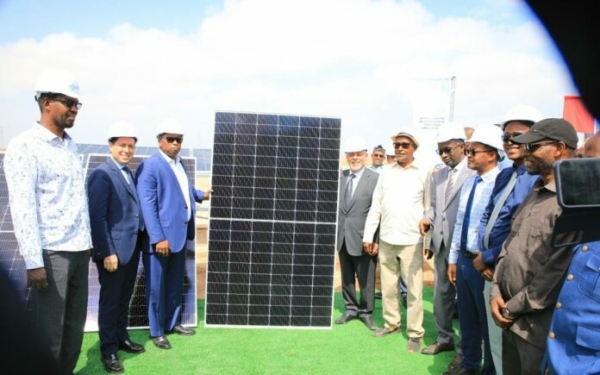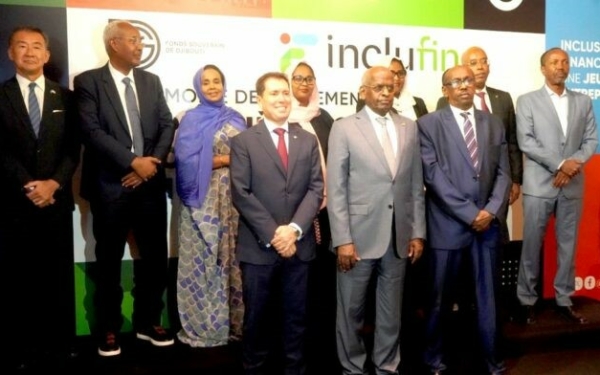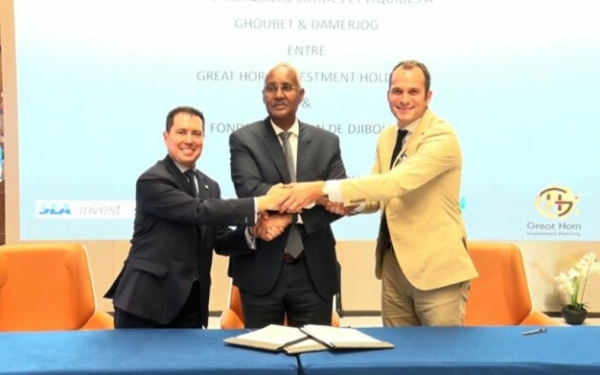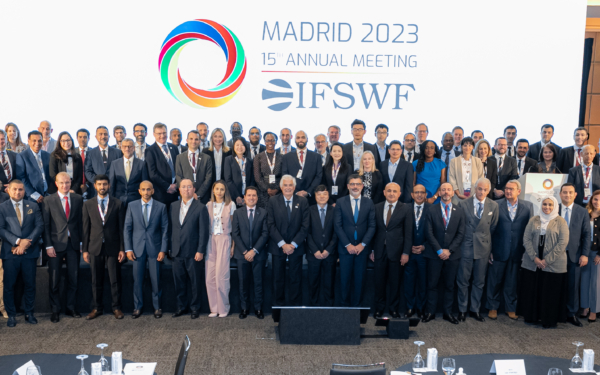Copyright © FSD. All rights reserved
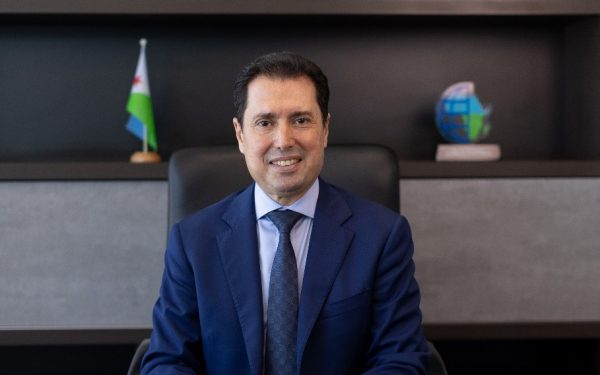
13/10/2022
THE WORLD OF SOVEREIGN WEALTH FUNDS
After the launch of the crowdfunding platform on October 10, 2022, the Chief Executive Officer of the Fonds Souverain de Djibouti “FSD” took his pen to patiently describe the world of finance.
The international financial system generally comprises three main segments: (1) the “sell side” (i.e., the sale of banking/financial products and services); (2) the “DFIs” (Development Finance Institutions), which are banks specialized in development finance; and (3) the “buy-side” (i.e., the purchase of or investment in financial instruments which, in general, are sold/proposed to them by the investment banks)
THE ROLE OF COMMERCIAL BANKS OR SELL SIDE
The “sell side” is mainly composed of banks (commercial and investment). The DFIs are the development institutions and banks such as the World Bank Group (which includes the IFC/International Finance Corporation…), the African Development Bank, the European Bank for Reconstruction and Development, and the Asian Development Bank. The “buy side” is the investment institutions.
The “sell side” is the sector where the main objective of banking institutions is to sell financial products and services.
The business of commercial banks is mainly to attract deposits from customers (individuals/retail or institutions/corporate) on the one hand and to grant short, medium, and long-term credits to the same or other customers on the other hand.
INVESTMENT BANKS
The business of investment banking is different from that of commercial banks and development banks. The business lines and activities of investment banks include: (i) financial advisory; (ii) mergers and acquisitions; (iii) capital raising; (iv) trading; (v) publishing research at the “macro” (related to stock markets, bond markets, the economy…) and “micro” (companies, sectors …) levels …etc. However, and especially since the 1980s, many large international banks have become “universal banks” that combine commercial and investment banking activities (such as Citigroup, JP Morgan Chase, HSBC, BNP Paribas, Deutsche Bank, Credit Suisse…).
DEVELOPMENT BANKS
Development banks generally raise capital from their shareholders/members (states) and the financial markets. They then allocate this capital to developing and/or emerging economies in development projects at preferential terms, rates, and margins compared to the terms and conditions of the international capital markets.
INVESTMENT INSTITUTIONS OR THE BUY SIDE
The buy-side sector includes investment institutions in a wide range of segments, such as :
– Institutions managing investment funds or portfolios, known as “asset management firms” or “investment firms,” are private. These firms manage, among other things, “long-only funds” and/or “hedge funds” (often with short-term investment horizons) that specialize in and invest in stock markets and/or bond markets and/or foreign exchange markets and/or commodity markets, and/or derivatives markets, etc.
The 20 largest international institutions in this buy-side segment, BlackRock, Vanguard, Fidelity…, manage about $70 trillion in assets, equivalent to about 75% of the world economy. There are thousands of institutions internationally in this segment, whose total assets under management far exceed the size of the world economy (about $94 trillion in 2021) and the world market capitalization (about $105 trillion);
– Private equity and/or venture capital funds, such as Blackstone, KKR, etc., which manage more than $4 trillion worldwide;
– Pension funds or retirement funds that manage more than 50,000 billion dollars;
– Sovereign Wealth Funds, which manage approximately $10.5 trillion.
THE FSD, A BUY-SIDE INSTITUTION, AND ITS DRIVING ROLE IN THE DEVELOPMENT PROCESS
The Fonds Souverain de Djibouti “FSD” is, therefore, part of the world of sovereign wealth funds (in the “buy side”), which manage about 10.5 trillion dollars internationally, representing the equivalent of about 11% of the world economy.
Before the creation of the FSD about two (2) years ago, the business of managing sovereign wealth funds and multi-sector portfolios with multiple asset classes and geographies did not exist in Djibouti. Due, among other things, to the fact that there are still no financial markets (apart from the 13 commercial banks in the country whose business, as discussed above, is different from the buy side).
In order to accelerate the development and success of the FSD and the training of Djiboutian skills in these new areas in Djibouti, the Djibouti authorities have chosen to avoid making it “a laboratory of experience” for 10-20 years by immediately attracting international expertise in these areas; as most other sovereign wealth funds have done in the past to maximize their chances of success (such as those of all the Gulf countries, etc).
The FSD, therefore, recruited, via international institutions specialized in high-level recruitment, a Chief Executive Officer (Dr. Slim Feriani) and a Chief Investment Officer (Mr. Jean-André Gbarssin).
Based in London (the world’s most important international financial center), these two hires immediately bring some 50 years of relevant experience. They allowed FSD to be immediately at the same level of credibility, skills, and know-how as all international stakeholders. Some of these have quickly become partners of the FSD this year, such as Meridiam (a giant in infrastructure on an international scale), AMEA Power (a significant player in renewable energy in Africa), Kasada Capital Management (the most important investment fund in the tourism sector in Africa), …etc.
STRUCTURE AND ORGANIZATION OF THE FSD
Like any investment institution, the organization of a SWF is based on a single engine: the investment department, which is managed by a Chief Investment Officer (CIO). All other departments are considered “support services” to the investment department.
In commercial investment/asset management firms, the front office is represented by the investment department and the marketing, communication, and client service department. Other departments are considered the “back office” (administration, human resources, accounting/finance, risk, compliance, IT, …etc.).
The investment department and the role of the Chief Investment Officer did not exist in Djibouti before the creation of the FSD. The only financial institutions here are commercial banks where operations, commercial, and credit departments mainly represent the “front office.”
As explained above, the investment and fund management business (the “buy side”) is totally different from the commercial banking business (the “sell side”).
- For example, the CFO’s role is as important as the sales/operations manager’s role in Djibouti’s commercial banks, while:
- the finance department in a SWF simply provides a support service (to the “investment engine/department”) and focuses on the institution’s accounting;
- and there is no commercial/operations or credit department in a SWF.
DEVELOPING EXPERIENCED ANALYSTS
The experience required in a SWF, at the level of its main engine (investment department), is that of seasoned financial analysts. It usually requires, first of all, studies in high-level business and management schools.
It requires specialization in finance at the Bachelor’s level and ideally at the MBA (Master of Business Administration) level or a Master’s degree specialized in finance or a “Chartered Financial Analyst” degree, which takes a few more years (after the Bachelor’s degree).
Courses needed for a financial analyst’s early career path include accounting, micro, and macroeconomics; international economics; financial mathematics; corporate finance; financial analysis; financial markets; investment and portfolio management; financial engineering; international finance, …etc.
Education and degrees are important and give you the mental gymnastics and tools you need later in the working world. But the most important thing to get into an SWF (a buy-side institution) is the experience and skills of a financial analyst. These are usually acquired in investment banks for a junior financial analyst role but preferably in the buy side (investment and fund management institutions) for a senior financial analyst role.
Buy-side solid experience, preferably in private equity and the international bond market, is essential to join an institution like the Djibouti Sovereign Fund.
Our roles as Chief Executive Officer and CIO at FSD include transferring our know-how, training, and coaching Djiboutian skills in financial analysts, portfolio managers, and management of investment institutions. We also attach great importance to the orientation of young graduates towards the finance sector.
SUPPORTING THE “VISION 2035” OF THE HEAD OF STATE
Two of the FSD’s main objectives over the next 3 to 5 years are:
(1) to train and develop the human capital of high-level Djiboutian skills that will ensure a solid foundation and the sustainability of the FSD;
(2) build a multi-generational (multi-asset class and multi-sector) investment portfolio that diversifies the Djiboutian economy, creates jobs and contributes to the realization of the “Vision 2035” of His Excellency the President of the Republic, Ismaël Omar Guelleh. With an ultimate goal of inclusive and sustainable economic and social development and prosperity.
Dr. Slim Feriani
Chief Executive Officer
Fonds Souverain de Djibouti
-End-
